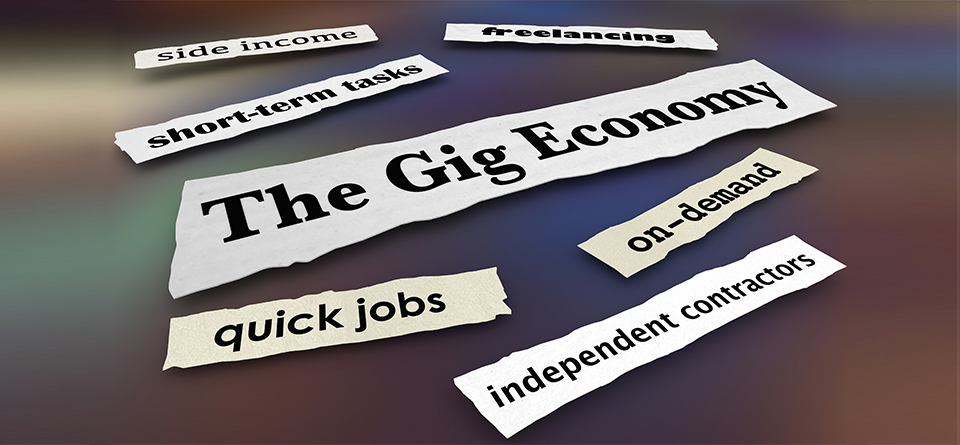What is Gig economy?
A Gig Economy is a system where employers or clients hire freelancers, or contractual employees or temporary workers instead of full-time or permanent workers. It is a flexible, temporary position where clients or customers communicate through an online platform or smartphone-based application for assigning tasks. It makes the workers adjustable to the need for time. Examples of Gig workers are freelancers working as web developers, graphic designers, bloggers, and the like, where clients can communicate with freelancers through online platforms like Upwork, Fiverr, Freelance, Expletas, etc. Another example of the Gig economy is the hiring of contractual taxi drivers by global brands like Uber, and Lyft. The temporary workers work for several companies at a time rather than sticking to only one for primary or supplementary earnings. Even sometimes universities also hire part-time or contracted adjunct professors to cut the cost by matching with the qualified faculties. According to the World Development Report 2019,0.3-0.5 percent of the gig workforce actively participates globally in gig the economy. Most of the gig workers could be found in countries like India, Bangladesh, Pakistan, United States, Philippines, and the United Kingdom. According to the Gallup Workplace report, 36% of all US. Workers were gig works in the year 2018. According to a report by Pew Research, the gig economy with grow faster with the usability of mobile services to buy and sell products.
Factors like advanced digitization in the modern world have made it possible for people to work remotely from anywhere in the world. This eventually gives an opportunity for clients seeking the best service without limiting to the boundaries. Sometimes economic factors also contribute to the development of the gig economy. It happens most of the time that employers have fewer funds and so to reduce the affordability cost they look for temporary or part-time workers for specific projects. On the flip side, to earn more people also take extra jobs or juggle between multiple careers in the gig economy. This also gives a better option for workers to reduce the monotony of the same job due to the option of multiple projects. Additionally, the ability to work from home gives an opportunity to the workers to create a work-life balance.
What is Gig economy? Read More »

